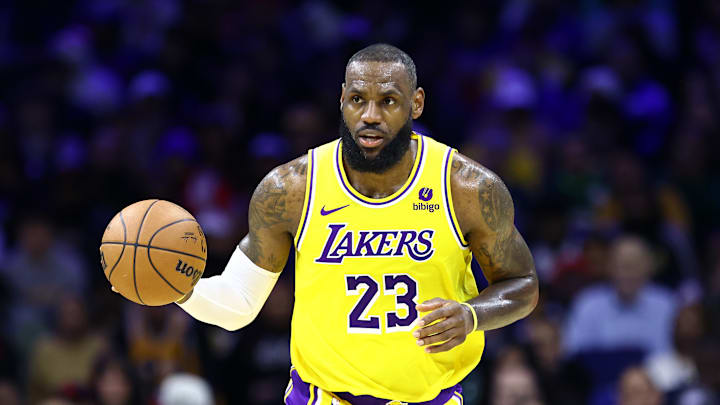On the Mind the Game Podcast, LeBron James suggested a new award idea for the NBA. "I did think about how the NFL does Offensive Player of the Year (OPOY) and MVP. I thought that could possibly be something in our league. You give an Offensive Player of the Year and an MVP. It changes things."
For those who don't know, there has been 69 “AP” NFL MVPs of those 69, 48 have gone to a quarterback, because they are the most valuable position. To subsequent the other valuable position players (like running back and wide receiver), they NFL has an OPOY award. Usually given to the best skill position player of that season.
James thinks on top of having the MVP, and Defensive Player of the Year, the NBA should also have an OPOY. It is unreasonable to do that, when the MVP values someone offensive production more than their defensive production.
Why the NBA MVP is the OPOY, and LeBron's idea doesn't hold water
To say the NBA MVP doesn't value what a player does defensively is not entirely true. Depending on how close a race is, someone who brings a bigger impact defensively could possibly get the edge over someone who doesn't bring the same impact, when both players offenses are equal.
If there was a hypothetical OPOY in the NBA, one of the easier ways to be a candidate or win the award is to lead the league in scoring. However, since the MVP became an award for the 1955-56 season, 20 times the player who won the MVP, was also the scoring champ. The rest were either among the best scorers in the league, the best passer in the league, or both.
One of the biggest factors of winning the MVP is having your team be successful, and most of the time, players who have the greatest offensive impact contribute the most to winning. James, of all players, should know that based on his first two MVPs, leading the Cleveland Cavaliers to top six offenses while being the only viable offensive option.
James' idea behind the OPOY is to not value winning the same way the MVP does. A perfect example is this past season. Nikola Jokic had one of the greatest individual seasons of all time, but because the Oklahoma City Thunder finished the with sixth-best record of all time, Shai Gilgeous-Alexander won the MVP. Other seasons like this: 2021 Steph Curry, 2019 James Harden, 2005 and 2006 Kobe Bryant, and 2003 Tracy McGrady.
Then there's the part in equating who is the best OPOY. How do we determine who's the best offensive player between someone averaging 30 points and five assists versus 25 points and 10 assists. People value a player’s ability to score, but someone who averages a few less points but more assists, generates more points. Then voters would have to think about the efficiency factor. Eventually, it'll come down too, which player's offense impacts winning at a higher level, then suddenly, it's the MVP race.
Although the idea of an OPOY is to celebrate other great offensive outputs, guaranteed if we go back to when the first MVP was given, most MVP winners would also win the OPOY, which would then make the OPOY a pointless award.
